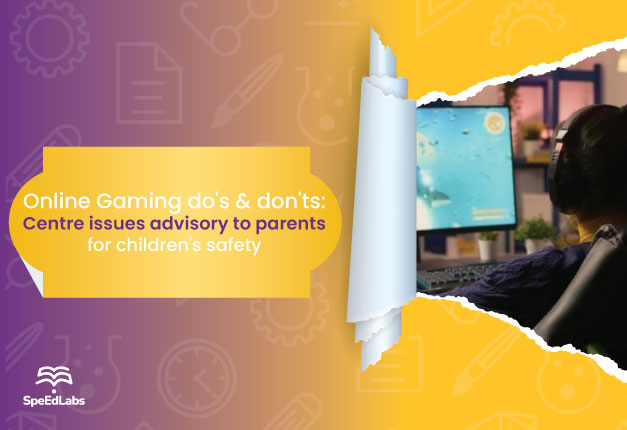Online Gaming, GenZ’s popular leisure activity!
Children have always loved playing games online but they had a time window for that. But in 2020, a series of events followed, Covid-19 led to the closure of schools and educational institutions, which in turn led to an increase in children’s use of mobile phones and the internet, leading to increased involvement in online gaming. In light of this, the Ministry of Education has issued a warning to parents about how to cope with youngsters who spend too much time on their phones and has released a list of do’s and don’ts for teachers and parents about safe gaming.
What the Centre has to say about online gaming?
The Centre posted a directive to parents and teachers on Thursday about the dangers of online gaming, noting that school closures due to the lockdown had increased in youngsters utilising cell phones and the internet.
According to the Ministry of Education, excessive online gaming has several negative effects on a child’s health, including gaming disorder and significant gaming addiction. The government stated that internet games are harmful to children “Each level is meant to be more difficult and convoluted than the one before it. To advance in the game, a player must push himself to the maximum. As a result, playing a game with no limitations would almost surely develop into gaming addiction, resulting in disorder in both children and teens.” The government has produced a list of dos and don’ts in light of the possible harm that gaming might do to a child’s health. Take a look at the list below.
THINGS TO BE DONE: DO’S
- If something goes wrong when playing online games, stop right away and capture a screenshot (using the “print screen” button on the keyboard) to report it.
- Assist your youngster in keeping their personal information private while playing the game. They may, for example, use a screen name (avatar) or another moniker to conceal their true identity.
- For your child’s protection, use anti-virus and anti-spyware programmes, as well as parental controls.
- If a stranger on the gaming platform tries to start a chat about something improper or asks for personal information, report it right once.
- Always double-check the game’s age rating before allowing your youngster to play it.
- In the instance of bullying, advise your child to ignore the harassing communications while simultaneously keeping a record of them and reporting them. You may also utilise the “block” feature.
- Always ensure that your youngster uses a family computer to browse the internet.
- Allow your youngster to play alone, and keep a watch on them while they use gaming platforms or social media.
- Install a home internet gateway with capabilities such as monitoring, logging, and limiting the sorts of information that your children may access.
- Teachers must keep a watch on their kids’ declining academics and social behaviour. If the instructor notices anything strange or alarming, he or she should inform the parents and school administrators.
THINGS NOT TO BE DONE: DON’Ts
- Do not allow in-game purchases without a parental agreement, according to an official notification issued by the Education Ministry.
- Avoid using credit or debit card registration on applications for subscriptions and instead, utilise the OTP-based payment mechanism.
- Request that your children refrain from downloading software or games from unfamiliar websites.
- Children should be warned not to click on links, photos, or pop-ups on websites since they may contain unsuitable material or viruses that harm the device.
- When downloading any game, avoid using the personal information on the internet. This rule applies to both the offline and online world, never give out personal information to a stranger or an acquaintance for that matter.
- Playing games for lengthy periods is not recommended.
HOW WILL THE ADVISORY HELP?
The advisory issued by the centre will not only make people aware but also will make the parents more vigilant towards the online games that children are playing.
The advisory also held gaming corporations responsible, claiming they “emotionally encourage the youngster to buy additional levels and nearly force in-app purchases,” as well as noting that playing online games leads to a significant gaming addiction that has been labelled as a “gaming illness.”
Key Takeaways
While there are benefits of indulging in leisure activities like decrease in stress, enhancement of focus, improvement in multitasking ability and decision-making skills, there certainly are many side effects too. Obesity, depression, bad grades, addictive behaviour, and increased aggressive or violent behaviour have all been related to online gaming.
When as a parent you find yourself at crossroads, remember that the right balance is key to most concerns and recognize that what works for one child might not be the best combination for another.
The education ministry has come forward to help such stressed-out parents and brought to light many severe disadvantages for the health of children, and hence has issued an advisory listing do’s and don’ts.
Also published on Medium.
